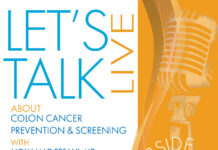

The Westchester County Board of Legislators has begun consideration of a measure that would ban the sale of flavored e-cigarettes and vaping products, including mint and menthol, in Westchester County.
While the proposed legislation remains before the board’s Environment, Health and Energy Committee, and Legislation Committee, the board has scheduled a public hearing on the measure for the evening of Oct. 21.
“The serious health concerns that have arisen around vaping present an urgent public health crisis,” said Legislator Nancy Barr, chairwoman of the Environment, Health and Energy Committee. “It is especially urgent because of the appeal of these flavored products to younger users. While we anticipate the state will eventually pass a law to protect the public, as county legislators we need to be working now to prevent the creation of a new generation of nicotine addicts.”
Kitley Covill, chairwoman of the Legislation Committee, said protecting the public health is one of lawmakers’ most solemn responsibilities. “This legislation builds on the actions we’ve already taken to raise the age for the purchase of tobacco products, in order to protect the public health and well-being of the people of Westchester,” she said. “I look forward to working with my colleagues to make this a strong, fair piece of legislation.”
The national Centers for Disease Control is currently investigating the cause of recent deaths and illnesses that appear to be related to vaping.
On the state level, in response to an outbreak of lung injuries among otherwise healthy people who use electronic cigarettes or vaping products that has prompted investigations and public health warnings by the Food and Drug Administration, the Centers for Disease Control and Prevention, Gov. Andrew Cuomo, and state and local health departments, Assemblymember Amy Paulin and State Sen. Gustavo Rivera urged passage of their bill to hold electronic cigarettes to the same standards of distribution and transportation that currently apply to tobacco products.
Rivera is chairman of the Senate Health Committee while Paulin sits on the Assembly Health Committee. “The alarming public health incidents involving vaping confirm the worst nightmares of parents who were already alarmed by the increased use of Juul and other vape pens by teenagers,” said Paulin. “I have heard from student activists in my district who tell me that it is far easier to obtain electronic cigarettes and other vaping products from Internet retailers than to go to a physical store, since websites make only a rudimentary attempt to verify age. It simply makes no sense that you’re prohibited from buying addictive tobacco cigarettes online, but you can buy addictive electronic cigarettes online.”
“E-cigarettes and vaping products are causing New Yorkers to develop serious health issues, and our youth are particularly vulnerable. We have a responsibility to safeguard New Yorkers’ health by regulating these products as what they are – public health hazards that are just as damaging as traditional tobacco products,” added Rivera. “The Senate’s upcoming hearing to investigate the safety and potential harm of such products will consider important policies such as this.”
Public health advocates, parents, educators and student activists have expressed alarm for many years at the rise in popularity of e-cigarettes and vape pens among teenagers. The products usually contain the addictive substance nicotine. The intended use is to help those addicted to tobacco products to cease smoking by managing their cravings for nicotine. However, the very use of nicotine makes electronic cigarettes addictive, as well.
In addition, electronic cigarettes routinely contain flavoring including diacetyl – a chemical linked to a serious lung disease, other cancer-causing chemicals, and heavy metals including nickel, tin and lead. What could be a comparable health risk for long-term smokers is a clear danger for teenagers and others who never started smoking in the first place but could become addicted to vaping. The Food and Drug Administration has reported that within the past year, use of e-cigarettes has risen by 78 percent among high school students and 48 percent for middle school students.
The issue has taken on new urgency with an outbreak of 1,299 lung injury cases reported by the CDC through the end of September, in which 100 percent of those injured indicating that they regularly vaped. So far, 80 percent of these vape-related lung injury cases have been found in people 35 years and younger. Twenty-six people nationwide – including a 17-year-old in the Bronx – have died from a vaping-related sickness.
This legislation would ensure that electronic cigarettes are included, along with cigarettes and other tobacco products, in several important laws and regulations. In particular, it would add electronic cigarettes to the section of law that bans the shipment of cigarettes by businesses to individuals, including by internet retailers.
“This bill will not impose an appreciable burden on individuals using e-cigarettes to break their addiction to tobacco, since it is the same set of regulations they’re already accustomed to following for tobacco products,” said Paulin. “But it will help close the loopholes that make e-cigarettes, vaping products, and nicotine easier to obtain than tobacco for those under age 21.”
“In the wake of a clear public health emergency, New York State has already mobilized to protect our citizens, particularly our young people, and I am hopeful these efforts will educate everyone on the health risks associated with vaping,” she continued. “We also need to employ the exact same policies and regulations that have helped us dramatically reduce the instances of teenage smoking. That’s what our bill does.”





